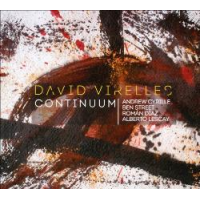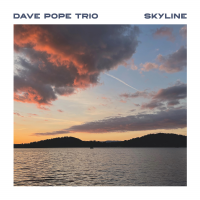Home » Jazz Articles » The Moment's Energy » Furthest From "Weather Bird" So Far...
Furthest From "Weather Bird" So Far...

Louis Armstrong
trumpet and vocals1901 - 1971

Earl Hines
piano1903 - 1983
There's been nothing inevitable about that rate being maintained. In later years—and for all of the miracles of his trumpet solos—Armstrong settled down as an entertainer more than he did a musician intent on always moving forward. Jazz history shows us how even arch-conservatives can often make for a rewarding listen, but it's still fun to speculate, and a quartet of recent releases makes it unusually so. Violinist Aleks Kolkowski and vocalist Ute Wasserman's Squall Line (Psi, 2011), singer Kay Grant and clarinetist

Alex Ward
multi-instrumentalistb.1974
Given the remit imposed by music captured on record, three of the duos are mapping uncharted territory, although to say that AMM isn't, merely because it has a recorded legacy, is misleading. Kolkowski and Wasserman augment the austere lineup of strings and voice with a musical saw (rescued from Vaudeville, at last!), an Edison phonograph and the singer's collection of bird calls. The resulting music is rich, and would be unnerving if it wasn't for the regularity with which the duo fashions intricate counterpoint. In a piece like "Blunk," it's intent on ensuring an equal distance between austerity and richness is maintained.
Grant and Ward are comparatively naked, as it were. Their music comes from Grant's voice and Ward's clarinet and that's it. It might, therefore, be assumed that their efforts exude an air of struggle against limits, but its effortlessness proves otherwise. Their accommodations with the moment are—even when they're at their most overtly active—always sly, and occasionally infused with wit, especially in Grant's case. Given this, a title like "Thin Ice" takes on more than a little irony, especially as the piece consists of some of the most quietly potent music on offer.
Something that the two duos already discussed have in common is a tangible link with the human: it could hardly be any other way, given the presence of voices. Lexer and Schiller offer no such touchstone, and furthermore the negation of the known is integral to their music. The lineup of piano+ (the plus symbol is essential, suggestive as it is of a keyboard augmented) and spinet is hardly rife with precedents. Over the course of just under 43 minutes the sound —and the singular applies despite the joint input—flows in denial of any evolutionary idea. In so doing it can, by turns, merge with the ambient sounds of everyday life as easily as it can raise the question of just how that piano was augmented and, indeed, how some of the sounds were made. Given this pervasive quality, it comes as a surprise when obvious keyboard sounds do appear—as they do in the 19th minute of the album's only piece, but by that point it's obvious that this is a duo which habitually thinks in long-form.
Such thinking is second nature to AMM, one of longest-standing groups in the recorded history of freely improvised music. Consisting of pianist

John Tilbury
piano
Eddie Prevost
drumsb.1942
The work of two need not necessarily ally itself with the known, then; a point which was as true of Armstrong and Hines on December 5, 1928 as it was of AMM on November 27, 2011. The distance covered in the years between has, in many ways, far exceeded the passing of physical time, which only goes to show how endlessly intriguing improvised music can be.
Tags
The Moment's Energy
Nic Jones
United Kingdom
London
Louis Armstrong
Earl Hines
Alex Ward
John Tilbury
Eddie Prevost
Comments
PREVIOUS / NEXT
Support All About Jazz
 All About Jazz has been a pillar of jazz since 1995, championing it as an art form and, more importantly, supporting the musicians who make it. Our enduring commitment has made "AAJ" one of the most culturally important websites of its kind, read by hundreds of thousands of fans, musicians and industry figures every month.
All About Jazz has been a pillar of jazz since 1995, championing it as an art form and, more importantly, supporting the musicians who make it. Our enduring commitment has made "AAJ" one of the most culturally important websites of its kind, read by hundreds of thousands of fans, musicians and industry figures every month.
Go Ad Free!
To maintain our platform while developing new means to foster jazz discovery and connectivity, we need your help. You can become a sustaining member for as little as $20 and in return, we'll immediately hide those pesky ads plus provide access to future articles for a full year. This winning combination vastly improves your AAJ experience and allow us to vigorously build on the pioneering work we first started in 1995. So enjoy an ad-free AAJ experience and help us remain a positive beacon for jazz by making a donation today.

London
Concert Guide | Venue Guide | Local Businesses
| More...








 Buy Now
Buy Now















